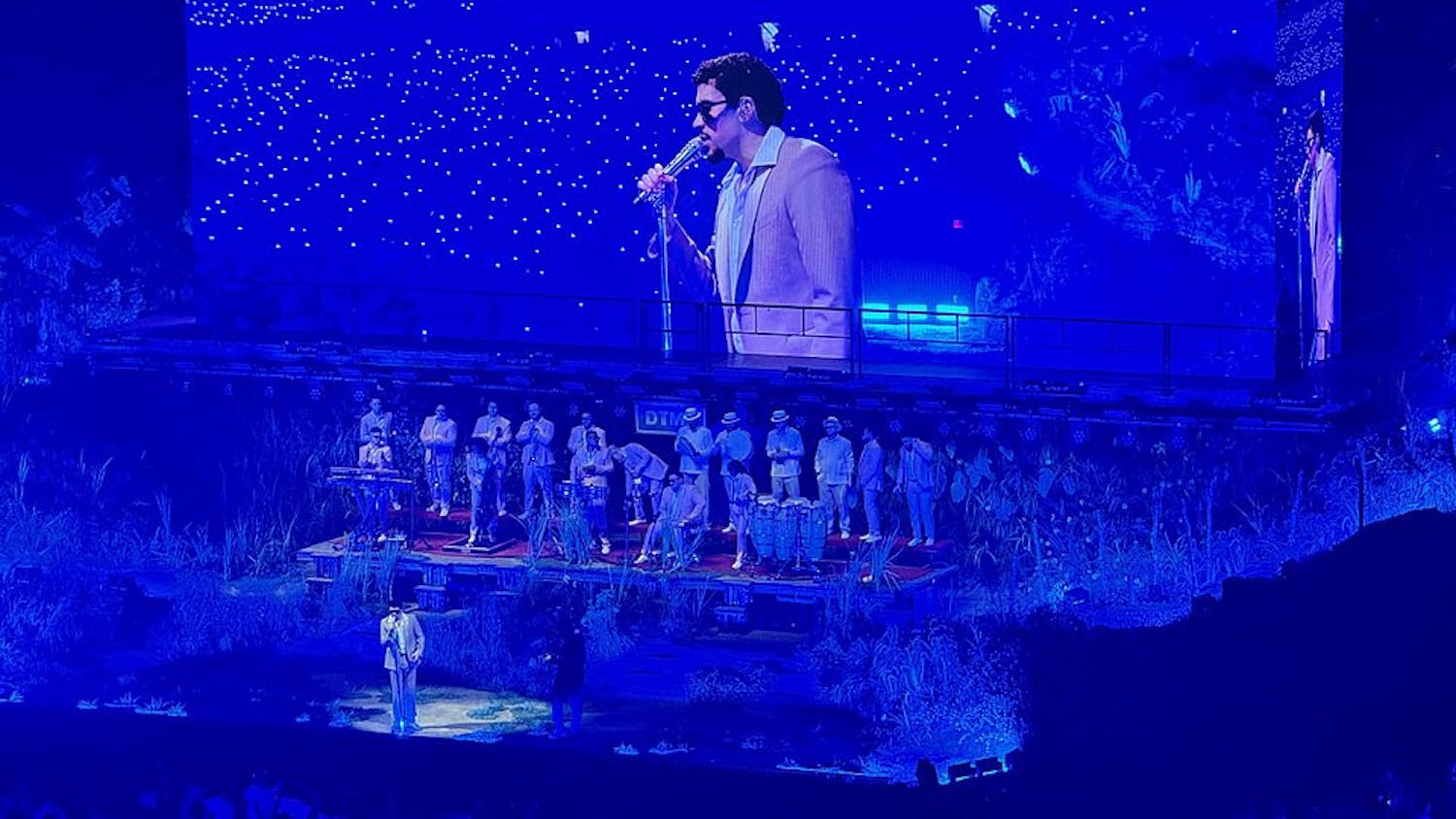Syllabus week — the best time of the semester for many students who welcome the opportunity to zone out in lecture, skip discussion and go out without any next-day consequences.
Oftentimes, professors repeat the same policies we’ve heard before. No, I don’t know yet if the final will be cumulative. No, you cannot use your laptop in this class.
For most students, a “no-screen” policy is simply a minor inconvenience. Taking notes by hand is cumbersome and practically antiquated compared to taking notes on a laptop. Many professors try to offset annoyance about such rules with empirical evidence, especially since this is a research university.
For example, I’ve been told to read the same Scientific American article for at least two of my classes, which explains the data behind the claim that students who take notes on a laptop have lower comprehension of class material than those who take notes by hand.
I get it. It’s funny to make memes about the ridiculous freshmen who sit in the front row of the lecture hall and noisily tap away at their Macbooks the second the professor starts talking, even on syllabus day. This contributes to a strong case for a laptop-free classroom.
In addition, much of the research centers on the fact that laptop users type what the lecturer says verbatim. Since typing is so much quicker than handwriting, students use that to their advantage to try and document as much information as possible. On the other hand, students who handwrite notes are forced to hastily digest and summarize the information since they cannot record it all. This leads to higher learning outcomes, since students immediately create their own memorization pathways.
I don’t disagree with the research, which speaks for itself. I do, however, disagree with the way it is often applied in college classrooms.
I choose to believe that professors have the best intentions in mind when they choose to implement no-screen policies. However, when doing so, they forget that some students depend on technology to be successful in their class.
According to the McBurney Disability Resource Center, there were 2,220 students with documented disabilities enrolled at UW-Madison in 2017-’18. Listed disabilities include students on the autism spectrum, students with learning disabilities, those that are Deaf/Hard of Hearing, as well as several other categories. These students do not just enjoy using laptops in class because it allows them to text their friends while the professor is talking. Instead, they depend on technology for academic success.
In the same breath that many professors give their take on the use of technology in the classroom, most of them also take the opportunity to read UW-Madison’s institutional statements on diversity and equal opportunity for students with disabilities. When we talk about diversity, we often focus on the categories of race, gender and sexuality, forgetting that diversity of ability is important, too.
I have never met a professor who refused to let a student with documented McBurney accommodations, like myself, use technology in the classroom because of a no-screen policy, probably because that would be a violation of the Americans With Disabilities Act. But it seems like many of them don’t realize that no-screen policies create a hostile environment for their students that require the use of laptops and other technologies in class.
For one, when a student takes notes on a laptop in a class that doesn’t allow them, they immediately stick out like a sore thumb. To their peers, not only does this immediately identify them as someone who receives McBurney services, it also makes them seem like someone who directly refutes the researched claims the professor has given for their technology policy.
McBurney students should not have to sacrifice their right to confidentiality in order to be successful in college courses, which they are almost certainly required to do when they are one of the few laptop users in a large lecture.
To some students this might not seem like a big issue. But lack of privacy is not the price “disabled” people pay to be treated equally in the classroom — indeed, since the Americans With Disabilities Act is federal law, this is something students are entitled to without penalty.
An example of the need for confidentiality is my hesitation to use the umbrella term of “disabled students” in this article to apply to all students who receive McBurney services, because not everyone identifies with the term. It also carries a stigma that is seldom more than mentioned in diversity and inclusion efforts. It is absolutely no one’s business but the students’ and the professors’ as to who receives accommodations and why. However, this information is involuntarily made public when a student takes notes using technology in a no-screens class.
Some professors offer McBurney’s note-taking services as a way to rectify this issue. Students are assigned a notetaker for the class and are able to access those notes after class, in the hope that the note-taker will be able to take notes more thoroughly or neatly than the student receiving accommodations might. I recognize this service as incredibly useful for students with chronic illnesses or other health issues, who might not be able to make it to every class.
However, every student knows that each person has a note-taking style that is unique to them. Students are encouraged to work with the McBurney Center to communicate with their note-taker if the notes they are given are not up to par, but such feedback only goes so far.
For a science class, for example, it might be okay for students to receive verbatim notes, because the information is fairly straightforward. But for a humanities class, students may want to add personal notes or things they find interesting, and taking the time to do this in class can put a student that takes notes by hand slower than average even more behind.
I think this should be relatable for students even without any challenges that make taking notes difficult — it is a pretty common experience to be in the middle of a sentence when the professor decides to change the slides, and now that sentence is incomplete forever. Let me also add that oftentimes taking notes at home from the lecture slides is becoming more and more undoable: Many professors have stopped posting lectures, as it discourages students from coming to class.
Professors may be right when they say that taking notes on a laptop harms a student’s ability to do well in their class, but for some students, it is the only option. Enforcing policies that call them out for this does no good.
We are all adults. Professors should present their case as to why taking handwritten notes is a better choice, and then allow students to make their own choice. The information is important — but the right of all students to feel comfortable in every class more so. By giving all students the choice to use technology in class, the right to privacy is also protected.
Per federal law, students at public universities are entitled to disability accommodations; no sacrifices necessary. When the next syllabus week rolls around, I hope my professors will be more understanding of how to implement them.
Izzy is a sophomore studying political science. What do you think about no-screen policies? Please send all comments to opinion@dailycardinal.com.






